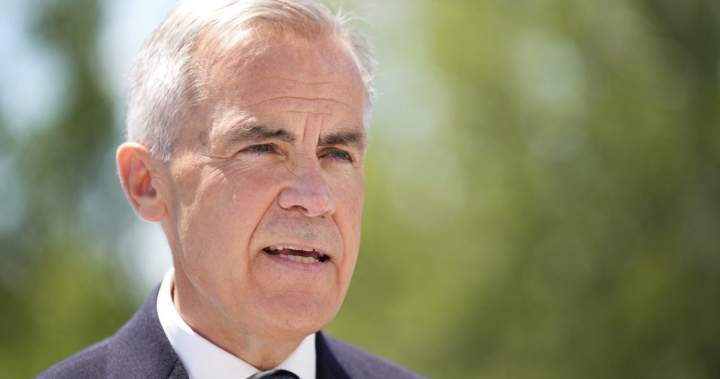Prime Minister Mark Carney said negotiations between Canada and the U.S. on a new trade and security deal have reached an “intense phase,” as an Aug. 1 deadline looms.

Carney made the comments in Prince Edward Island on Monday during a separate announcement about the Confederation Bridge.
“The negotiations are at an intense phase,” Carney said. “It’s a complex negotiation you see with the various trade deals that have been agreed by other jurisdictions … there are many aspects to these negotiations.”
He did not, however, say if a deal would be reached by the Aug. 1 deadline set by President Donald Trump.
“We’re standing up for Canada. The United States and Canada can do many good things together, we have done that in the past, we can do more in the future but on fair terms for our country,” Carney said.
Story continues below advertisement
Earlier this month, Trump threatened that the U.S. would impose a 35 per cent tariff on Canadian imports into the country, with the exemption of goods covered by the Canada-United States-Mexico Agreement (CUSMA).
There is currently a blanket 25 per cent tariff on some Canadian goods not exempt due to CUSMA, a duty that Trump imposed over border security and fentanyl concerns.
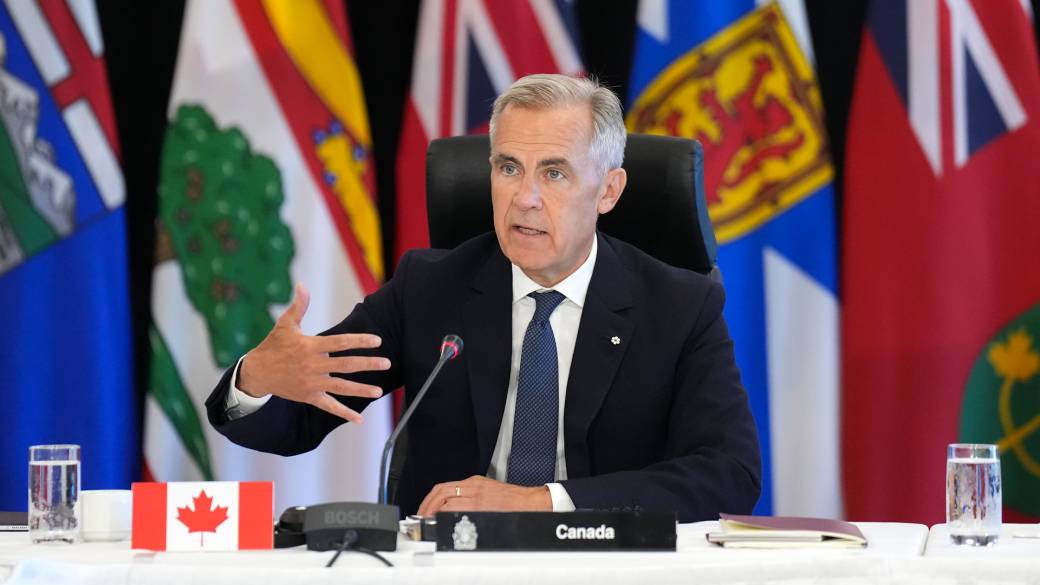
1:05
Carney wants to ‘lower costs for Canadians’ by cutting toll costs for Eastern ferries
That is in addition to a 50 per cent duty on steel and aluminum exports to the U.S. and a 25 per cent tariff on the automotive industry. Copper duties are also expected to come into effect on Friday.
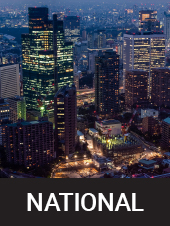
Get daily National news
Get the day’s top news, political, economic, and current affairs headlines, delivered to your inbox once a day.
Over the weekend, Trump announced the U.S. and European Union had agreed to a trade deal setting a 15 per cent tariff on most goods.
Asked Monday if he was expecting a deal for Canada would be around a similar amount, Carney said there were some similiarities with the EU.
Story continues below advertisement
“We’re one of their (the U.S.) most important trade partners, number two depending on how you measure both imports and exports,” he said.
But he said there was also differences in terms of how close Canada is to the U.S. geographically and how Americans rely on Canadian energy, and it’s why negotiations between their two countries differ from others.
“There is a landing zone that’s possible, but we have to get there and we’ll see what happens,” he said.
More on Canada
More videos
Questions were raised last week on whether a deal could be reached, however, when Trump told reporters their northern neighbour may “just pay tariffs.”
“We haven’t really had a lot of luck with Canada,” Trump told reporters outside the White House. “I think Canada could be one where they’ll just pay tariffs, not really a negotiation.”
With the deadline just days away, the prime minister was also asked on what benefit there was in rescinding the digital services tax to restart negotiations late last month if a deal is not reached.
Trending Now

Ontario family sues hospital and staff over son’s death
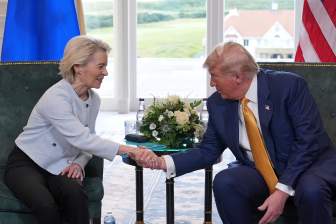
A new trade agreement has been reached between the U.S. and EU with 15% tariffs
Carney told reporters that it was a “hypothetical” that a deal won’t be reached.
“It’s a hypothetical on a hypothetical, so we’ll see where things land in terms of the negotiation,” he said.
Story continues below advertisement
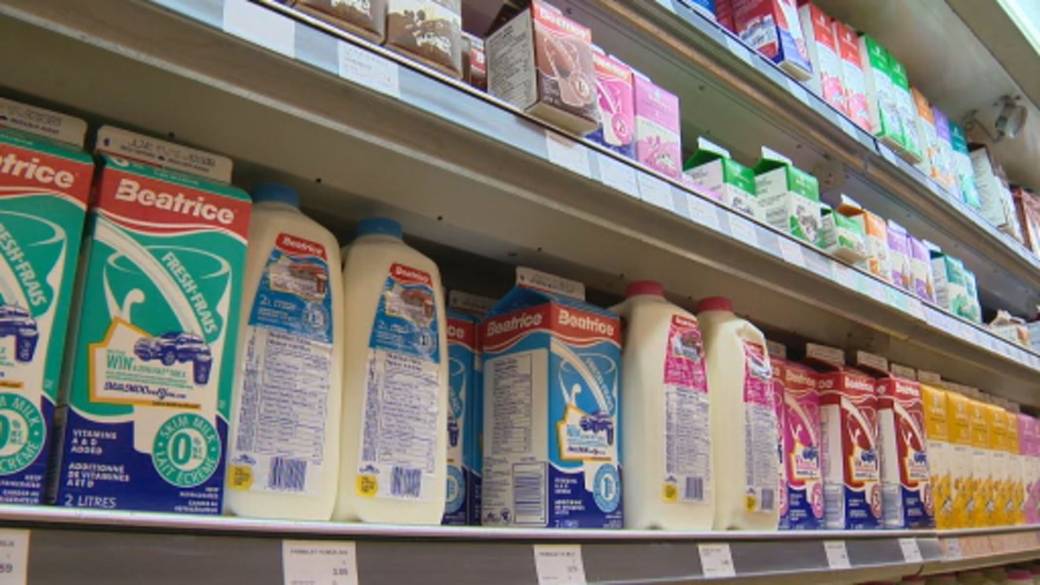
2:06
Canada’s dairy sector in the crossfire of U.S. trade tensions
The prime minister was also pressed on if that “landing zone” would include any concessions on supply management, an issue that has been a sticking point for Trump.
Last month, Trump said Canada was a “very difficult Country to TRADE with,” claiming on his social media platform Truth Social that the country charges “tariffs” of up to 400 per cent on dairy products.
Canada uses a quota system that allows a set amount of some foreign dairy products into the country, but high tariffs only apply if countries try to exceed that allowed quota coming into Canada.
Canada’s supply management system, which dates back to the 1970s, has restricted foreign access to the Canadian dairy market in order to protect domestic producers and set quality standards for products.
Story continues below advertisement
On Monday, Carney said they’ve been “clear” about supply management.
“We’ve been clear about language rights as things that are fundamental to our structure,” he said. “There was access negotiated as part of, as Ms. Freeland knows, as part of the existing USMCA, as they would call it the CUSMA Accord, and the question is the effectivness of those agreements. So look, we’re going to, as I say, stand up for Canada’s best interests.”
—with files from Global News’ Uday Rana
© 2025 Global News, a division of Corus Entertainment Inc.

